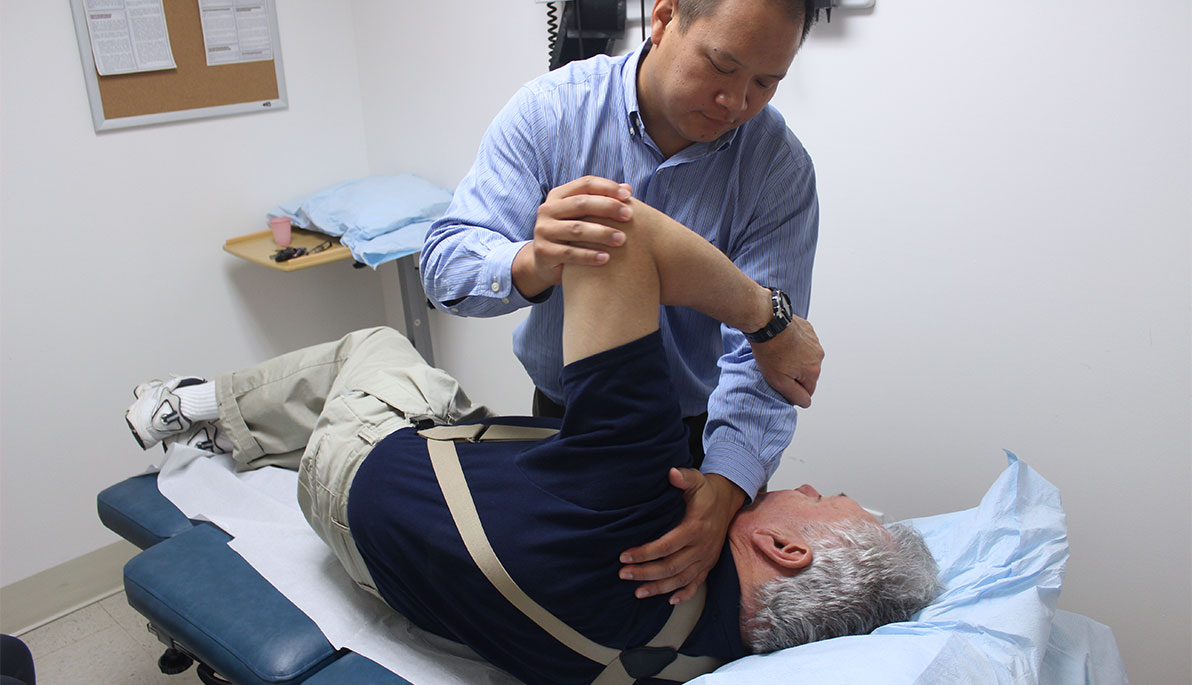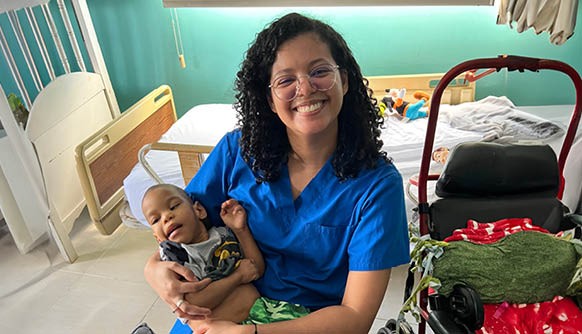News
NYITCOM Researchers Awarded Grant for Parkinson’s Disease Research
July 1, 2016
The American Osteopathic Association (AOA) has awarded a $140,000 grant to NYIT College of Osteopathic Medicine researchers to study the effects of osteopathic manipulative medicine (OMM) on patients with Parkinson’s disease.
“The main objective of the two-year study is to see if OMM affects balance and motor function,” said Associate Professor Sheldon Yao (D.O., ‘02), the lead researcher for the project, referring to the hands-on, gentle manipulative techniques used by osteopathic physicians to diagnose, treat, and prevent injury or other medical conditions. Yao is chair of NYITCOM’s department of OMM.
Yao and his colleagues, including Drs. Jayme Mancini, Joanne Donoghue, Adena Leder, and Joerge Leheste, are among only nine teams nationally to receive a portion of about $1 million in research grants from the AOA to conduct studies involving osteopathic medicine. According to the AOA, “the merit-based grants will facilitate research projects designed to demonstrate the value osteopathic physicians offer patients and the greater healthcare community.”
NYITCOM has long conducted studies on Parkinson’s disease at its Old Westbury, N.Y.-based Adele Smithers Parkinson’s Disease Treatment Center, which treats about 500 patients yearly. Parkinson’s disease affects between 7 and 10 million people globally, and about 60,000 people in the United States are diagnosed each year. Patients often experience tremors, muscle rigidity, difficulty controlling their limbs, or slowness in movement, known as bradykinesia.
Yao says previous studies have suggested that OMM improves gait, postural instability in healthy elderly subjects, and balance in patients with dizziness. The AOA-funded study will be the first that examines the effects of OMM treatments on motor function and balance. Researchers believe that regular treatments may help improve both, leading to a reduction in falls, a common occurrence for patients with Parkinson’s disease. NYITCOM’s researchers plan to study 24 people over two years; half will receive osteopathic treatment and the other will receive counseling as a control.
Another part of the study seeks to discover OMM’s effect on the biological markers (called biomarkers) that can be measured through blood or urine samples to indicate the presence or severity of disease.
“We want to discover if we can see changes in biomarkers explaining why OMM would work in decreasing oxidative stress in Parkinson’s disease subjects,” said Yao, referring to the patients’ inability to fight off certain substances that damage normal cells.
Yao says the study is important because it addresses clinical outcomes while also including basic science research to help explain how treatment affects Parkinson’s disease patients.
“If this study is successful,” says Yao, “it would promote the use of OMM in Parkinson’s disease patient to help alleviate symptoms and improve quality of life.”




